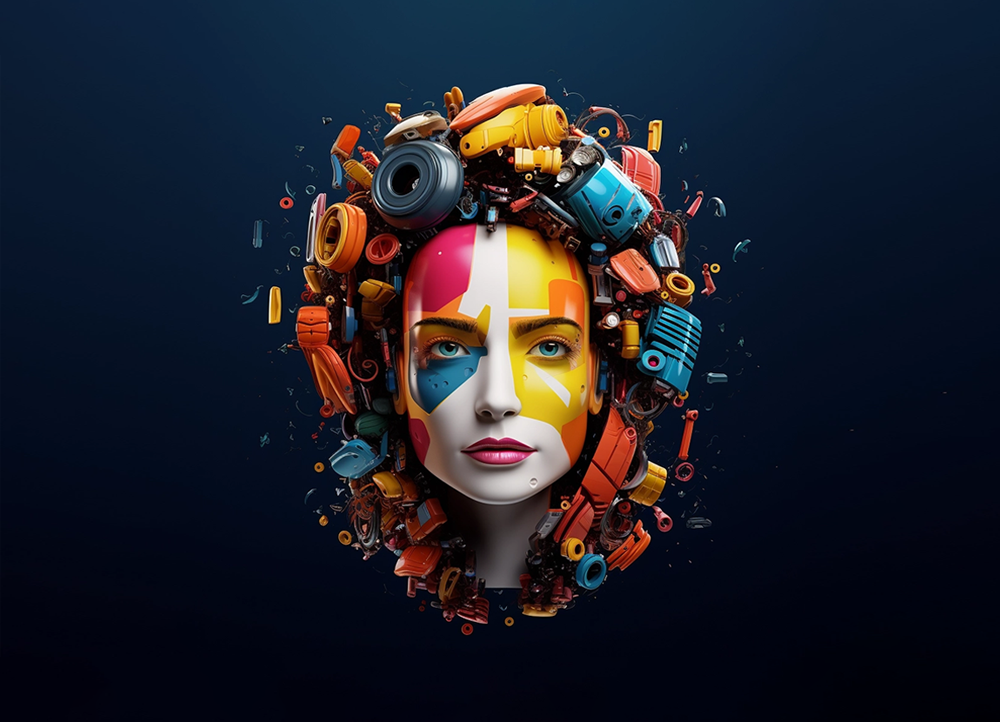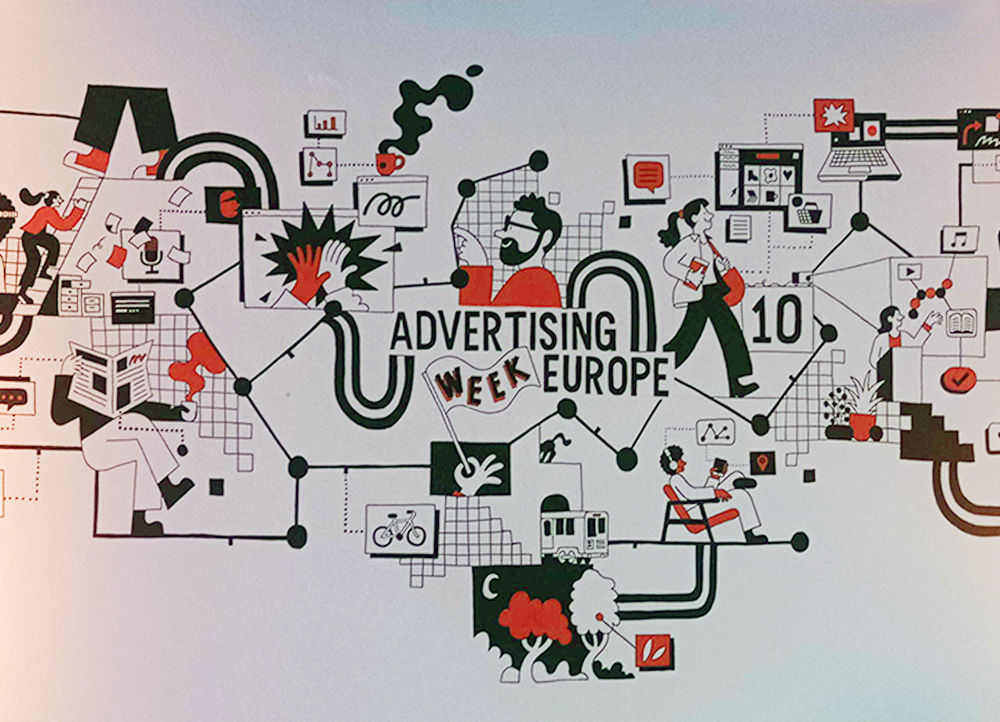Much is being written about Generative Artificial Intelligence, a type of AI technology that can produce various types of content – including text, imagery, audio along with analyzing huge amounts of data fast and automating many tasks. It begs several questions for B2B marketers and corporate senior management – what can AI do better than marketing people? Where will the skill of marketing professionals still be needed moving forward? Will B2B marketers and their agencies become obsolete at some point soon?
Forbes addressed the issue head-on last summer by asking “Will AI lead to the end of marketing jobs?” The article starts by saying “The emergence and rapid increase in the performance of AI has some people worried, not least of whom are marketers who envisage the likes of ChatGPT replacing them.” The author then advocates for embracing AI as a tool that should not be feared.
McKinsey & Company recently observed that “If you want to boil down 2023 to one concept, it would have been generative AI (gen AI). They reported on ten underlying ideas in AI that are shaping the modern business landscape.
The prestigious Harvard Business Review wrote last month about “How to Capitalize on Generative AI – a guide to its benefits while limiting its risks. They gave some refreshingly pragmatic advice on the subject: “Business leaders should view it as a general-purpose technology akin to electricity, the steam engine, and the internet.”
At present there appear to be some marketing tasks that AI is very good at performing versus humans, and others not so much. Here’s a comparative list to consider:
How AI Can Improve B2B Marketing
AI can significantly enhance B2B marketing in various ways, often leading to more cost-efficient, effective and personalized (more engaging) marketing strategies. Some of the ways that AI can help include:
– Predictive Analytics: AI can analyze large sets of data to predict future customer behaviors and market trends. This insight allows B2B marketers to better anticipate needs, personalize outreach, and develop more targeted marketing strategies.
– Customer Segmentation: AI algorithms can segment customers more accurately based on analyzing behavior, preferences, and engagement patterns. This segmentation enables marketers to tailor their messages and offers to different groups, improving the relevance, engagement and effectiveness of their campaigns.
– Lead Scoring and Qualification: AI can evaluate, and then score leads based on their likelihood to convert, helping sales teams prioritize their efforts. This process ensures that time and resources are optimized by focusing on the best prospects.
– Personalized Content Creation: AI tools can help in creating personalized content for different segments of the audience. By analyzing data on customer preferences and behaviors, AI can suggest or even generate specific content that resonates better with each segment.
– Chatbots and Virtual Assistants: AI-powered chatbots and virtual assistants can provide instant, 24/7 customer service and support, usually at a much lower cost at CSRs. They can answer queries, provide product information, and even assist in the sales process, enhancing customer experience and engagement.
– Email Marketing Optimization: AI can optimize email marketing campaigns by determining the best times to send emails, predicting the most effective subject lines, and personalizing email content for individual recipients.
– Optimizing Marketing Channels and Budget Allocation: AI can analyze the performance of various marketing channels and provide insights on where to allocate budgets for maximum ROI. It can also help in automating and optimizing ad placements and bids in real-time.
– Enhancing Customer Journey Analysis: AI can map and analyze the entire customer journey, identifying key engagement touchpoints and areas for improvement. This understanding can lead to a more cohesive and integrated marketing strategy.
– Sales Forecasting: AI can improve sales forecasting by analyzing historical data and market conditions, leading to more accurate predictions about sales trends and revenue potentials.
Why B2B Marketing Professionals Will Still Be Needed
While cost-conscious C-level executive may be getting excited at the prospect of cutting back on expensive marketing overhead in their organizations in favor of AI-driven marketing automation, they should consider the following:
– Strategic Planning: People are better than AI at strategic marketing planning based on the inherent difference between human cognition (acquiring knowledge and understanding through thought, experience and senses) versus AI systems that are primarily based on historic pattern recognition and statistical inference from large databases, lacking the ability to generate purely original thoughts. People understand context and nuance. They are capable of innovation which is essential for effective strategic planning. People also have emotional intelligence – understanding and anticipating human emotions and behaviors. Lastly people are much more adaptable and flexible – able to make decisions in uncertain and unpredictable situations or recognizing areas offering innovation and growth. AI relies on historic data and predefined algorithms which limit its effectiveness in novel scenarios. Nobody ever did well while driving the car looking out of the rear-view mirror so to speak.
– Creativity: Humans have a deep understanding of complex social, cultural, and psychological contexts and motivations. They can interpret nuances, emotions, and unspoken signals in business environments, which can be crucial for creating marketing strategies and campaigns that resonate on a human level. AI simply cannot do this. People also have emotional intelligence and empathy that allows them to understand and connect with emotion needs and pain points in business with engaging messages. Humans excel at making connections between disparate ideas which often make for truly differentiated and more impactful marketing initiatives. Finally, people have experience and intuition that can lead to the creation of marketing messages that are not immediately evident from analyzing data along.
– Task Automation vs. Job Replacement: AI can automate certain tasks within B2B marketing, such as data analysis, predictive modeling, and even content creation. However, automating tasks does not necessarily equate to replacing entire jobs. Many aspects of B2B marketing, such as creating a compelling argument for marketing spend, connecting apparently unrelated data points, relationship building, and understanding nuanced market needs, still require people.
– New Skill Requirements: The rise of AI in marketing is changing the skill sets required for professionals. There will be a growing demand for marketers who can interpret AI-generated data and integrate AI tools into broader marketing initiatives. This shift may require existing professionals to upskill or reskill. People will still be needed to spec and hire these people and/or develop AI-centric training programs for current staff, prioritize marketing initiatives, and effectively engage /collaborate with other departments like IT, sales and legal / compliance.
– Industry Variability: The impact of AI will vary across different industries within the B2B sector. In some areas, AI might bring significant changes, while in others, the impact might be minimal. The level of technology adoption and the nature of the products or services being marketed will influence this variability.
– Ethical and Regulatory Considerations: There are ongoing concerns about data privacy, ethical use of AI, and regulatory compliance in marketing. These concerns necessitate a human oversight to ensure that AI applications align with legal and ethical standards, especially in highly regulated sectors like financial services.
HBR drew a sensible conclusion its AI article “In many cases the best use of generative AI will be to make human workers more productive or creative, not to replace them.” AI has and will continue to impact many parts of B2B marketing, but it is likely to augment the roles and responsibilities of people rather than render them obsolete. Moving forward B2B marketing will be a blend of human expertise and AI capabilities working together.
It’s not quite time to heed the words of HAL (the heuristically programmed algorithm computer) from the iconic film 2001 A Space Odyssey who said, “I am putting myself to the fullest possible use, which is all I think any conscious entity can ever hope to do.” HAL then sees humans as the enemy and decides to terminate the crew. Astronaut Dave Bowman finds himself locked out of the spacecraft by HAL (without a helmet) and asks the computer “Open the pod bay doors please, HAL”.
We all know how that ended, Dave got back in the spacecraft via the airlock (without his helmet) then he promptly pulled the plug on HAL.
Share and tag us @alwaysbecontent








